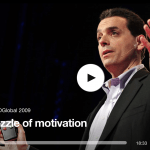What is a great company culture? (and why is it important?)

A great team has 3 foundations, and if any one is missing, the company culture and the company itself… won’t stand:
- A strong leader, respected by the rest of the team – in our case Simon, our founding Managing Partner. Hard not to respect his track record, and his work ethic and love for the job are unparalleled. Tick.
- Individuals who are intellectually able to deliver. True of us all, we like to think. Tick
- Cultural cohesion… This blog is about the third, cultural cohesion.
You already know how important a strong culture is in any company, especially a start-up. Episode 1 is still a startup, 6 years old and 9 people strong.
Why’s culture important?
A strong, cohesive, rewarding culture leads to happy, productive workers who aren’t looking over their shoulders and can perform at their optimal level. Insecurity from cultural mismatch usually leads to a fight or flight response in the brain. It’s just plain neuroscience. Can’t be avoided….unless people feel secure in a culture that suits them. Without that, you’re putting a material barrier to success in your way.
When we hired Carina, who quickly became a Partner, we had a lot of highly qualified people, many with years of investing under their belt. We knew, as we were getting close to having to make a decision, that it was crucial she fit culturally with us. How to best measure that?
I chatted to Courtney Suhr, head of talent at Passfort, about this. Courtney talked about creating a defined set of questions that carefully test the candidate’s fit with Passfort’s core values: Trust, Empowerment & Growth. Importantly cultural fit for her has nothing to do with social fit – i.e. going out to drinks or dinner with a candidate is not part of the decision process at all.
There are tools out there like Flock which intelligently measure company culture so you have the baseline, and then can measure each candidates fit with it. Anouk, our head of talent recommends them.
Many of our portfolio companies will include a social / activity component in their interview process. For them social fit is part of cultural fit. ThirdEye takes all last-round applicants to the local climbing wall…
When we are looking to invest in a startup, the CEO’s cultural fit with Episode 1 is important too – more so than you might think. We spend a lot of (sometimes quite intense) time with our CEOs and if we don’t get on, enjoy mutual respect and clear communications, are aligned, can have fun together etc etc then our job won’t be much fun and will be less successful. You have to, at best, get on with your investors and, at worst, at least respect them, to have an effective Board relationship. Sometimes the relationship will turn sour, but if you go in with a good relationship it’ll weather the storm.
What makes for a great culture? Greg Gottesman* came up with a great list to which we have added a few and removed a few:
-
- No politics – really hard in a big organisation, but easier and even more important in a startup. How best to ensure this? Frank, honest communication and regular 360 degree feedback. This leads to clarity and mutual respect. And getting rid of people immediately who are too political and clearly piss off a large proportion of their colleagues. And hiring only people with integrity and firing those without it. Attest use CultureAmp as an effective tool to gather all the “continuous feedback” that they do there.
- It’s not a job, it’s a mission – you won’t be able to hire the best people in the early days without having a missionary ethos flowing through the organisation. As you grow it becomes moderately less important and many, particularly in sales and engineering, may well fit in perfectly well even if they are really just motivated by the salary and complexity of the tech. But it always helps, no matter your size.
- Intolerance for mediocrity. Both Attest & Passfort were proud of their Learning & Development focus (and budgets), and only hire people who want to spend those kinds of budgets. A thirst to learn and develop will shake out the mediocre. Attest give every employee 2 days / month of “venture time” to pursue learning. They also use www.sunlight.is to help their people find the best content, courses and events globally.
- Equity-driven – ultimately paying someone more cash and less equity will be cheaper for you as a founder in the long-run because your equity will hopefully be extremely valuable, but I do encourage using the option pool to motivate the team. Not too liberally, but it’s there for a reason. Some companies give options (with suitable vesting terms which are critical) to every employee which is a personal choice. It’s neither a good nor bad idea. Just make sure you have enough in the tank to incentivise the star hires. And have a systematic approach to options allocation so it can be efficient and fair.
- Perfect alignment – comes from….
- Good communication, especially in bad times – ensuring everyone in the company knows exactly what the strategy is, and making sure they think about how every decision they make aligns with that strategy is critical. They will hear the bad news through the grape-vine – better for it to come out of your mouth as CEO in a way you want it communicated than via rumours…. Rebecca Williams, head of talent at Attest, told me that CEO Jeremy King presents every board deck from the most recent Board to the whole company for Q&A, removing only the confidential. At Attest every team also shares their OKRs with every other team in the company once a fortnight to ensure they are all held to account, clear on what every other team is working on and to look for possible synergies between teams.
- Strong leadership with high energy – impossible to give a few lines of explanation for this. A million books written about it. One of my favourites is the One Minute Manager.
- Autonomy – do you like being micro-managed? Does anyone? Allowing people to write their own job description and get on with it, alongside regular feedback, generally leads to the best results. “Responsible Autonomy” is Attest’s core value, and Empowerment is one of Passfort’s 3 driving values.
- Customer-obsessed – I think it’s hugely useful to in-depth observe your customers regularly
- Fun – obviously. Sharing moments of fun is integral to cementing relationships and you, as a leader, need to work out what “fun” means to your people. What will work across the variety of characters you have hired.
- Knowing your people – if you don’t know your people well (i.e. what motivates them) you won’t get the most out of them. The GC index is a tool used at Attest to measure just this. It’s similar to a psychometric test but focused on what drives individuals as opposed to what their personality is. Gary Vaynerchuk, love him or hate him, makes the point in his energetic way here. He focuses on (a) knowing what motivates every one of your employees and working to fulfil their motivations and (b) finding the employees who make their colleagues miserable and removing them.
- Mental health – Awareness of mental health has grown enormously over the last few years. Why do I add it to this list – for me it’s self-evident that a culture can’t be healthy when individuals within it are suffering with mental health issues. The subject came up a lot in conversation with Rebecca and Courtney, backing up this belief. They talked about the importance at Attest and Passfort of mental health training and subsidised access to mental health services like Sanctus.io & Mind (a mental health action plan provider).
So how did we check for Carina’s cultural fit with Episode 1? We trialled her by getting her to join pitch meetings and our team Investment Committee weekly meetings to see how she fit with our values. Our five core values are intellectual curiosity, “rolling our sleeves up”, frankness, commitment and pragmatism. All of these things are naturally tested in meetings apart from perhaps commitment, but as a successful entrepreneur, we were confident that wasn’t a problem. Carina also joined as an investment professional, not a full Partner, so before she took that leap, we had 6 months of observing her in action at the coal face.
We also rather enjoy the social fit she has with us over dinner, which does help!
*Greg Gottesman in Do More Faster by Cohen/Feld; Wiley. Page 96-98
This post was taken from a blog post written by Adrian Lloyd for Episode 1. The original post can be found at: https://www.episode1.com/blog/seed-to-series-a-journey/what-is-great-culture-and-why-is-it-important/
Episode 1 is an early stage venture capital firm based in London, with a £60m fund to invest in UK software driven startup. It has been the backer of successful companies like Carwow, Triptease & AimBrain. They lead rounds of £500k to £2m into fantastic teams with real insight into markets that are emerging or evolving.
FEEL INSPIRED LIKE WE WERE…?
Find out more about Your FLOCK on:
Your FLOCK´s website and make sure that you connect with us on social media, by following us on twitter! 🙂





